




| Ohel's Participation in Jewish Camps...Ohel Children's Home and Family Services |      Views: 279 Added: 1 year ago | |
| Time: 07:25 |
 Watch video here - Related videos
Watch video here - Related videos



 (2 ratings)
(2 ratings)  Watch video here - Related videos
Watch video here - Related videos| A sexual abuse scandal from the 1980s about a pedophile network with ties up to the then Reagan/Bush White house, which was covered up by the FBI (more) |      Views: 4,227 Added: 10 months ago | |
| Tags: franklin case conspiracy silence lawrence king Alan Baer Robert Wadman John DeCamp bush reagan sexual abuse iran contra Time: 10:17 |
| that the then head of the Omaha police department, Robert Wadman, was actively involved in the sex parties and the cover-up of the case. He (more) |      Views: 3,830 Added: 10 months ago | |
| Tags: franklin case conspiracy silence lawrence king Alan Baer Robert Wadman reagan bush John DeCamp sexual abuse iran contra Time: 10:01 |
| that the then head of the Omaha police department, Robert Wadman, was actively involved in the sex parties and the cover-up of the case. He (more) |      Views: 2,041 Added: 10 months ago | |
| Tags: franklin case conspiracy silence lawrence king Alan Baer Robert Wadman reagan bush John DeCamp iran contra Time: 10:19 |
| that the then head of the Omaha police department, Robert Wadman, was actively involved in the sex parties and the cover-up of the case. He (more) |      Views: 1,773 Added: 10 months ago | |
| Tags: franklin case conspiracy silence lawrence king Alan Baer Robert Wadman reagan bush John DeCamp iran contra Time: 09:50 |
| .com http://franklincase.org/...franklin case conspiracy silence lawrence king Alan Baer Robert Wadman reagan bush John decamp iran contra sigler (more) |      Views: 1,928 Added: 10 months ago | |
| Tags: franklin case conspiracy silence lawrence king Alan Baer Robert Wadman reagan bush John DeCamp iran contra sigler Time: 07:18 |
| that the then head of the Omaha police department, Robert Wadman, was actively involved in the sex parties and the cover-up of the case. He (more) |      Views: 2,092 Added: 10 months ago | |
| Tags: franklin case conspiracy silence abuse sex scandal lawrence king Alan Baer Robert Wadman iran contra reagan bush Time: 07:11 |
Now-retired sex-crimes Detective Sal Catafumo recently told The Post that his 1984 investigation of a bogus Borough Park rabbi (Avrohm Mondrowitz) who had reportedly molested "hundreds" of children - including some Ohel orphans - while working as a child counselor got nowhere when cops tried to question the agency.
"They weren't cooperating," Catafumo said. "Kids ... had complained to Ohel and it was swept under the rug ... [and] never reported ..."
The rabbi was indicted, but he fled to Israel.
McKelvey and Ohel CEO David Mandel deny that the agency ignored kids' complaints about both Adler and the fake rabbi.
McKelvey dismissed Catafumo's claims as "absolutely false," and said Ohel "cooperated fully with authorities in the matter and was deeply involved in the treatment of the victims in this case."
McKelvey and Ohel CEO David Mandel want to play the denial game, not surprising. The reality and facts though are like this.
Ohel Children's Home and Family Services employed at least two child molesters; Adler and Mondrowitz. Ohel Children's Home and Family Services tried to keep the sex abuse allegations from reaching the publics domain through a vigorous web of twisted lies, deceit, and manipulation. Ohel Children's Home and Family Services depended and still depend on advice from a slew of questionable Rabbinical characters and sources (Rabbi's Dovid Choen, Aaron Twersky etc.) CEO David Mandel made a mockery of his agency by indulging and honoring Lipa Margulis in his 2006 defense of Yehuda Kolko and Yeshiva Torah Temima; this all taking place in the same building where the child molestation took place (they should have moved the session to the boiler room). When parents asked pointed and direct questions for David Mandel on how to keep their children safe; he responded with evasion and doublespeak.
There have been concerns about the domestic abuse program. Some are claiming that women are being entrapped in a conspiracy to blame the husband for abuse which never occurred. What would Ohel gain out of doing that? MONEY!
Be extremely careful of the people you trust. Be especially cautious of Ohel Children's Home and Family Services. Be very wary in believing the empty words of CEO David Mandel. Why take all these precautions? Because if you don't - You may as well believe in the tooth ferry and santa clause. Last year, we witnessed the debacle of the YTT Parents question and answer session on Ocean Pkwy. We saw David Mandel make mince meat out of a very delicate situation. We saw Mandel evade and dodge questions he was asked by YTT parents as if he were trying to duck bullets. Mandel, along with cronies such as Margo, Twerskey, Belsky, and other unqualified self proclaimed experts on child molestation, made a mockery of all the victims who were sexually abused by their Rabbi's. They certainly made a laugher out of a very serious situation. They stepped on the parents the same way they would on a pile of ants. And what a circus it was! It was a meeting designed to save some face for YTT. It was an attempt to pull the wool over our eyes one more time. It was a time for salvaging YTT's reputation; whatever was left of it. And who better to accomplish that feat than the big money making raking machine, Ohel Children's Home and Family Services. How dare he! How dare David Mandel shrug his shoulders in the face of such unspeakable horror. How dare he proclaim that a child sexual predator has a good chance of recovery when he has not the credentials to do so. How dare he defend the mishandling and cover ups by Margo and YTT. How dare he bring his wares and lies to YTT rather than opting for a neutral setting, anyplace else but in the very same building that countless boys fell victim to molester Yehuda Kolko at.
You know that this is all bull crap. This is a Jewish Tainted Leadership propaganda machine. Believe in our lies and just shut up is the message they emit. Well we won't. Screw you David Mandel. With your deep Pocket$$$$ and your CEO position; all you can manage to do is betray the children who were molested at Ohel, YTT, Agudah, etc? That's all your good for is standing up for stinking and corrupt individuals? Shame on you, David Mandel. Shame on anybody that buys and feeds into your bull shi*t. And if David Mandel thinks his Jewish Observer article has swayed public opinion in his favor - then he is dead on wrong!
In conclusion. Ohel Children's Home and Family Services has undoubtedly helped many people, mostly in the orthodox Jewish communities. Yet, it doesn't grant them a free pass to mess up even one human being. If an individual has led a good life and one day wakes up and murders somebody - is he still considered a good guy? Should he be exempt from the judicial process based on prior good behavior? Of course not. Then why should Ohel Children's Home and Family Services be treated any differently?
------------------------------------------------------------------------------------------
OHEL Children's Home and Family Services
The RESPECT Program on Sexual Abuse
Specialists provide counseling for victims survivors of abuse, ranging in age from young children to adults. Also provides education, treatment and consultation services to victims, survivors, parents, educators, schools and community leaders. The program engaged in outreach to yeshivas and day schools in the greater New York metropolitan area, providing child safety education and training to students, parents, and teachers in a sensitive manner. OHEL also provides consultation and seminars on the issues to communities across the country.
-------------------------------------------------------------------------------------------
Check this out:
http://jewishwhistleblower.blogspot.com/2005/03/ozzie-orbach-story-how-ohel-and.html
--------------------------------------------------------------------------------------------
Compassion, Care and Concern At Ohel's Children's Home
The New York Post - September 24, 1999, Friday
SECTION: All Editions; Pg. 030
Douglas Montero's piece on sex-abuse allegations against a counselor at Ohel Children's Home does not reflect the fact that Ohel gave him two interviews and provided him with extensive information ("Victims Learn Kid-Sex Fiend Served No Time," Sept. 21).
Ohel reported to the Administration for Children's Services immediately after the accusations were made eight years ago. ACS investigated and determined the accusations unfounded. Far from "turning a blind eye to sexual abuse," Ohel fully and willingly cooperates with all authorities investigations of any kind. Whenever any allegation is made concerning the safety or well-being of a child or adult in Ohel's care, we immediately investigate. If the child in question has been placed in our care by the ACS, we immediately notify ACS and the Department of Social Services, which then conduct their own independent investigations.
Since its founding in 1969,Ohel has successfully treated thousands of children and families, many of whom are victims of sexual abuse. Within the Jewish community, and throughout our city, Ohel is known as a reliable organization that responds professionally to the most difficult situations involving domestic and child abuse and families in crisis, including people with mental illness or other severe disabilities.
It is most unfortunate that Mr. Montero - who was given the opportunity to visit Ohel and learn first-hand about our 600 employees and 650 volunteers who provide vital services to 1,800 people every day - chose to create the inaccurate and false impression that Ohel doesn't respond to victims of abuse. Our entire mission and our proud record of compassion, care and concern prove the opposite. David Mandel, Chief Executive Officer Ohel Children's Homeand Family Services, Brooklyn
---------------------------------------------------------------------------------------------
http://www.theawarenesscenter.org/Adler_Simcha.html
Victims Learn Kid-Sex Fiend Served No Time; Nightmare Lingers For Kid-Sex Victims, Exlusive
By Douglas Montero
The New York Post - September 21, 1999, Tuesday
SECTION: All Editions; Pg. 003
MICHAEL vividly remembers the knife pressed against his throat.
He was 11, face down in bed at an upstate summer camp for Jewish orphans, when his partially clad counselor mounted him and threatened to kill him if he screamed.
"I was telling him to stop because it really hurt," said Michael, now 19.
For nearly two months, between games, outdoor activities and Orthodox religious observances, Michael would return to the horror of his cottage and forced sex with the 24-year-old man, he recalled.
Michael said he saw the same counselor sexually abuse his roommate and best friend, Robert, also 11 at the time.
Robert remembers vague abuse, but not specific acts.
Along with Michael, he claims the attacks continued at the Ohel Children's Home and Family Service Group Home in Borough Park, Brooklyn.
Michael and Robert say their complaints to other staffers were ignored for a year, until a worker caught the counselor straddling Michael.
Police were called and Michael remembers telling sex-crimes investigators in June 1992 that he wanted "justice."
The two boys hid the scars of the abuse for nine years. And then, last month, they discovered what had happened to their attacker:
He walked.
Simcha Adler, now 33, plea-bargained charges of sodomy, sexual abuse and two counts of endangering the welfare of a child down to attempted sodomy, court records show.
His punishment: five years' probation and psychological counseling.
"It's a crime that he could walk away ... and have a normal life," said Michael, now a mailroom worker in Midtown. "This man ruined my life."
Robert vaguely remembers Ohel workers telling him that Adler had been given probation.
"I was [angry], but I couldn't do anything - I wasn't smart enough to do anything," said Robert, now a City College freshman who wants to be an optometrist.
"He should be in jail for the rest of his life," said Robert, who was placed in Ohel because he was sexually abused by his mother.
Michael and Robert have contacted lawyers to find out if they can properly punish Adler. They also want to know if Ohel - their legal guardian - can be held accountable for failing to vigorously nail the pedophile to a prison cell wall.
Although the statute of limitations for suing is three years, the countdown didn't begin until they turned 18.
Adler was arrested on June 22, 1992, and released on $2,000 bail, then plea-bargained his way to freedom on Aug. 12 - less than two months later.
Ohel should have screamed murder, but it didn't.
Ohel fired Adler in May 1992, after two years of employment, but agency officials wouldn't say whether his termination stemmed from the sexual abuse.
Adler was charged with entering Robert's room and sexually molesting him.
"I could feel him coming before he even got in to my room," Robert said. "I knew what was going on, and I would fall asleep - I guess I was in shock ... Then I would wake up again and realize he was still on top of me."
Adler also was charged with fondling Michael in the shower.
"The counselors would take the kids to the showers and they [the kids] would bathe in their shorts," Michael recalled. "He [Adler] always made me take my shorts off.
"I couldn't sleep at night because I didn't know when he would walk into my room."
Michael and Robert angrily charge Ohel swept the abuse "under the rug" to avoid a legal battle that might ruin its reputation.
A former Ohel employee told The Post the boys' allegations were not taken seriously or investigated by Ohel because Michael was thought to be a "liar."
Ohel spokesman Gerald McKelvey would not respond to the ex-employee's comments. "Because of confidentiality concerns, Ohel cannot comment directly on previous or former clients," he said.
But Ohel has a history of turning a blind eye to sexual abuse.
Now-retired sex-crimes Detective Sal Catafumo recently told The Post that his 1984 investigation of a bogus Borough Park rabbi (Avrohm Mondrowitz) who had reportedly molested "hundreds" of children - including some Ohel orphans - while working as a child counselor got nowhere when cops tried to question the agency.
"They weren't cooperating," Catafumo said. "Kids ... had complained to Ohel and it was swept under the rug ... [and] never reported ..."
The rabbi was indicted, but he fled to Israel.
McKelvey and Ohel CEO David Mandel deny that the agency ignored kids' complaints about both Adler and the fake rabbi.
McKelvey dismissed Catafumo's claims as "absolutely false," and said Ohel "cooperated fully with authorities in the matter and was deeply involved in the treatment of the victims in this case."
In general, said Mandel, "any allegations made by anyone are taken very seriously and are investigated."
The psychological trauma of the year long series of attacks is apparent in both Michael and Robert, who still live in Ohel housing because they don't have money, parents or any place to go.
Robert said he's never dated a girl because he wanted to focus on school. He spent the past summer watching TV and playing video games.
Asked if the sexual attacks might have something to do with his fear of dating, he said, "I don't know - I never thought about it like that."
Robert takes a battery of prescription drugs to deal with his attention-deficit hyperactive disorder (ADHD) and a mood disorder.
Michael admitted he began seducing other orphaned boys at 14. A heterosexual, he says he is aroused by rape scenes. Medical records show he also suffers from ADHD and mood disorders.
The owner of a Borough Park building where Adler, until recently, had been living told The Post that the former counselor - who married in December and moved to Jerusalem - admitted to her several years ago that he was a pedophile.
She said his confession came after Ohel officials knocked on her door and told her to keep an eye on her children.
"He [Adler] told me he was sexually abused [as a child]," said the woman, who requested anonymity.
Adler was sent to Ohel at age 3 after his mother died, said his foster mother, Barbara Ackerman, who added that he underwent extensive therapy following his arrest.
"Once it was brought to our attention, we watched him," she said. "He dealt with it and he handled it ... He is doing well."
GRAPHIC: LIVES 'RUINED': Michael and Robert, their faces obscured, tell The Post's Douglas Montero of their ordeal at the hands of a counselor with Brooklyn's Ohel Children's Home eight years ago, when they were 11. Sam Costanza
-----------------------------------------------------------------------------------------------
http://theawarenesscenter.org/offenders.html
The Following Stats are from the US Dept. of Justice:
Sex offenders
-
On a given day in 1994 there were approximately 234,000 offenders convicted of rape or sexual assault under the care, custody, or control of corrections agencies; nearly 60% of these sex offenders are under conditional supervision in the community.
-
The median age of the victims of imprisoned sexual assaulters was less than 13 years old; the median age of rape victims was about 22 years.
-
An estimated 24% of those serving time for rape and 19% of those serving time for sexual assault had been on probation or parole at the time of the offense for which they were in State prison in 1991.
Child victimizers
-
Offenders who had victimized a child were on average 5 years older than the violent offenders who had committed their crimes against adults. Nearly 25% of child victimizers were age 40 or older, but about 10% of the inmates with adult victims fell in that age range.
Women offenders
-
In 1998 there were an estimated 3.2 million arrests of women, accounting for 22% of all arrests that year.
-
Based on self-reports of victims of violence, women account for 14% of violent offenders, an annual average of about 2.1 million violent female offenders.
-
Women accounted for about 16% of all felons convicted in State courts in 1996: 8% of convicted violent felons, 23% of property felons, and 17% of drug felons.
-
In 1998 more than 950,000 women were under correctional supervision, about 1% of the U.S. female population.
The Punishment
-
61% of sexual assaults are not reported to the police.
-
84% of all rapes in the United States are Date (Acquaintance) Rapes
-
A woman is 5 times more likely to be raped by someone she knows.
-
57% of all sexual assaults take place on dates or in the context of relationships
-
If the rape is reported to police, there is a 50.8% chance that an arrest will be made.
-
If an arrest is made, there is an 80% chance of prosecution.
-
If there is a prosecution, there is a 58% chance of a felony conviction.
-
If there is a felony conviction, there is a 69% chance the convict will spend time in jail.
-
So, even in the 39% of attacks that are reported to police, there is only a 16.3% chance the rapist will end up in prison.
-
Factoring in unreported rapes, about 6% of rapists—1 out of 16— will ever spend a day in jail. 15 out of 16 will walk free. According to the US Department of Justice.
[Probability statistics compiled by NCPA from US Department of Justice statistics. See www.ncpa.org/studies/s229/s229.html]
---------------------------------------------------------------------------------------------The Stare
By David Mandel
When you really consider it, it was such a "normal" event, but we’re still not accustomed to it, so we look at these situations as an anomaly. People with disabilities involved in similar activities which people with abilities do shouldn’t be anything to be stared at, shouldn’t be viewed as so special. Yet, they are.
Going back a few months, many people went to Great Adventures Amusement Park on Sunday, Chol HaMoed Pesach. NCSY accommodated our community, as they do every year, by renting out the park (although every year, I wish they could rent out Central Park instead). Yachad, an affiliate of NCSY that provides many social and recreational programs for people with developmental disabilities, organized trips for hundreds of people with disabilities on that Sunday, Chol HaMoed to Great Adventures.
Walking through the park that day with my family, it seemed the park was truly rented for people with disabilities and everyone else was a guest. Children and adults who were walking, or those wheelchair-bound or with the aid of crutches, seemed to be having a grand time, and why not? Enjoying the music on that warm day, these individuals, who live at home or in residences operated by organizations serving people with disabilities, played coin toss and basketball, enjoyed the merry-go-round and the new wild upside-down monster superman roller coaster. Not me; my feet were firmly planted.
What was very noticeable was how children and adults stared at the people with disabilities. Why?
Is this a function of our discomfort? Of our subliminally thanking HaShem for our gifts of abilities? Is it momentary guilt that we ought to do more to help others? Or is it that as a society, as a culture, we ultimately view people with disabilities as different; hence, we pause, we stare.
Clearly, people with disabilities have made significant strides in recent decades. Advances in medicine, technology, psychopharmacology, coupled with legislative landmarks such as the Civil Rights Act of 1964 and the Americans with Disabilities Act (ADA) of 1979, created permanency and opportunity in housing, employment, transportation, education and other institutional frameworks. But how to rid ourselves of "the stare", that momentary feeling that makes us uncomfortable deep down and can create discomfort for the individual with a physical, developmental or psychiatric disability? By eliminating the stare, that sense of " difference" amongst us, we could substantially alter the ultimate stigma and make it a level playing field, opening new access and opportunities for these individuals as yet unimagined.
Consider the following examples:
My colleagues at OHEL/Bais Ezra, Leah Markovic, David Sharvit, Rochel Lewitter and Asher Fogel, organize summer sleep-away camp experiences for boys and girls by arranging to include them in mainstream summer camps such as Romimu, Shira, Dora Golding and Raninu. Twenty-nine boys and girls, young men and women with developmental disabilities, ages ten to thirty are attending these four camps this summer. They will have a full, enriched, summer experience in a "normal" camp (excuse the expression) and the lives of all children in camp are enriched by spending time with people with disabilities in many fun settings. These experiences will create immeasurable memories as these kids mature into adults and, hopefully, view disabilities in a different light. We gratefully appreciate the directors and staff of these four camps for integrating these programs: Rabbi Shlomo Pfeifer at Camp Romimu, Mrs. Rosenberg at Camp Shira, Mr. Alex Gold and Rabbi Siegal at Camp Dora Golding and Rabbi Tuli Klein at Camp Raninu.
Rabbi Yaakov Reisman, Rav of the Agudah of Long Island, suggests encouraging your child to invite over children who are less popular. Dr. Moshe Becker, of Congregation Shaare Tefilah in Lawrence, organizes several Shabbatonim every year for scores of children and adults with disabilities as Shabbos guests in several dozen homes. This gives parents of the disabled child a much-needed respite as many other families open their homes and thereby teaching their own children about people with disabilities.
"Chanoch lana’ar al pi darko" can also be interpreted to mean not only to teach children torah and mitzvos in an age-appropriate way, given their level of understanding, but also to teach an understanding and appreciation early on about people who may have different abilities. Encourage your teenage son or daughter to volunteer with people with disabilities or to give maaser from their bar mitzvah or bat mitzvah gifts. Young children often see their grandparents or great grandparents walking with a cane or a walker. Encouraging your young children to accompany Bubby or Zaide can teach them a valuable lesson in patience, an important trait often needed when speaking, playing or working with a person with a disabling condition.
Let us strive to reduce and, ultimately, eliminate "the stare".
Email David Mandel at DM@ohelfamily.org-----------------------------------------------------------------------------------------------
http://jewishsurvivors.blogspot.com/2007/02/shlomo-greenwald-n-sexual-abuse-in.html
Shlomo Greenwald )n Sexual Abuse In The Orthodox Community

The End Of Innocence
Confronting Sexual Abuse in the Orthodox Community
By Shlomo Greenwald
Click Here: to read the Jewish Press article
Wednesday, February 14, 2007
Vicki Polin Says:
I want to start off by thanking Shlomo Greenwald who is the author of the Jewish Press's newest article --"The End Of Innocence", he's really done an excellent job on this well researched story about sexual abuse in the orthodox world. I also believe that the Jewish Press deserves a round of applause for having the courage to publish the story.
One of the major goals of The Awareness Center is to educate our communities on issues relating to sexual violence. For that reason I've gone through most of Shlomo Greenwald's article -- pointing out various issues that as a people we really need to be aware of and address.
We need to do our best to use correct terminology when we discuss those who offend. We need to be using the terms sex offenders, sexual predators, child molesters and pedophiles. We also have to be aware that we have men who beat their wives and also women who beat their husbands.
Other issues we can't over look is that we have parents who abuse their children, and children who beat abuse their parents. We even have a problem with Juvenile sex offenders, sexually reactive children and sibling incest. We are not unlike any other community when it comes to these sorts of issues and crimes.
Jewish communities (of all movements) have a major problem with mental health professionals who do not have the specialized training or experience in sexual trauma who are now calling themselves experts. The reason I keep pointing this out is because when survivors go to those who don't have the proper qualifications -- the survivors often end up being re-victimized. This makes their healing process that much more difficult.
Trust is already an issue for survivors of sex crimes. When a surviovr receives inappropriate treatment -- the survivor often has a difficult time reentering a counseling situation with someone new.
Another issue is the reality that Jewish newspapers keep quoting professionals who are not qualified to be answering the questions asked when relating to sexual victimization and or those who are sex offenders.
As stated in Shlomo's article -- in the orthodox world there are not many mental health professionals or rabbis with the proper training. Fortunately when it comes to issues of domestic violence the Torah observant world is catching up the secular world. Unfortunately this is not the case when it comes to sex crimes. The reality is that the orthodox world is still in it's infancy. For that reason I am asking that when information is needed, Jewish journalists go to those who are the true experts -- not just someone who is jumping on the bandwagon.
If any journalist is interested in a list of Jewish experts in the field of sexual victimization or those who treat offenders, The Awareness Center would be more then provide them the appropriate resources.
Another serious problem we are faced with is the issue of the treatment of sex offenders.
As we are all aware there was a failed attempt by Ohel to treat sex offenders. I'll be honest, I have also only heard complaints of their treatment program for survivors. For those of you who are not familiar with Ohel, they are an orthodox mental health center in Brooklyn, NY.
A few years ago Ohel jumped on the bandwagon and called themselves experts without the necessary education or training. Because they are a Torah observant agency, individuals automatically instilled trust in them to provide appropriate counseling and treatment. Unfortunately, many survivors ended up feeling re-victimized.
Those of us at The Awareness Center have heard too many rumors over the years of offenders getting off the hook because of the "treatment" Ohel provided them. Unfortunately, this is example of the charedi world trying to do the right thing, yet lacking the necessary experience or training.
I have to admit that it is great that the haredi world is attempting to do the right thing, yet it's so vitally important for rabbis and mental health professionals to be qualified to do the work they are attempting to do first.
Over the last several years various papers have quoted David Mandel as an expert in sexual trauma and offenders. Mandel is the chief executive officer at Ohel. The problem is that David Mandel's education, degree and experience is in business. Quoting Mandel on these issues would be very similar to the New York Times quoting Donald Trump as an expert in halacha.
One very important comment made by David Mandel in Greenwald's article is that "very few people can treat it (sexual abuse/assault and offenders) because few therapists specialize in abuse."
The truth is outside the orthodox world there are many extremely qualified psychotherapist who have the necessary training and experience. Until orthodox professionals catch up to the secular world in their education in treating sexual trauma -- we need to utilize the best of what's out there. The goal is to help survivors heal and find ways that actually work in stopping sexual predators from re-offending.
One of the long term goals of The Awareness Center is to have a healing retreat center in which we can provide the necessary training to Jewish professionals and community leaders. The Awareness Center now offers a certification program to do just that -- what's lacking is the funding to get our program off the ground.
Over the years Rabbi Avraham Twerski has been an outspoken advocate in the areas of chemical addictions and domestic violence (women who have been battered by husbands). Unfortunately the fields of addictions and domestic violence are very different then working with survivors of sex crimes and those who commit them. A very sad reality is that when several survivors of childhood sexual abuse and also adults who have been sexual assaulted approached Rabbi Twerski for help, they reported feeling shunned and turned away. We all have our limitations in the areas we can be experts in. We need to be referring survivors to individuals who will not leave them feeling abandoned by someone they thought could help them.
I personally believe Rabbi Twerski is an extremely honorable man, someone who really understands the issues of domestic violence and addictions, yet when it comes to sex crimes he has his limitations. The same can be said about Rabbi Mark Dratch who is the founder of JSAFE.
One has to believe that the statistics of sex crimes in the orthodox world is the same as it is in any other population until it is proven differently. One out of every 3 - 5 women, and one out of ever 5 -7 men over the age of 18 are survivors of childhood sexual abuse. We need to be teaching our children about "good touch - bad touch" at a very early age. When we are teaching children the names of their body parts, it is vitally important we make sure our children knows the proper names of all of their body parts and not just their "head, shoulders, knees and toes".
Another thing that is helpful is to teach our children that the parts of their bodies that are covered by a bathing suit are very special and that no one has a right to touch them, except when changing diapers, when young children are being bathed or by a doctor for medical reasons, etc.
Over and over again when I mention the work of The Awareness Center many people start talking about domestic violence. They automatically ask if I'm connected to one of the local Jewish shelters. Organizations like the Shalom Task Force are excellent resources for battered women. The problem is that they are really not set up to handle survivors of sexual abuse/assault, parents of survivors, relatives or spouses of sex offenders or helping individuals making hotline reports. As stated in Greenwald's article they refer callers to frum therapist. Yet the article states there are not many orthodox therapists with the proper education, training or experience to be working with those who are facing the reality of sexual victimization.
Another issue is isn't really addressed is that sexual violence is not a "woman's issue". It's a human issue that claims the innocence of survivors that are both male and female -- and that are adults and children.
Over the last several months since the case of Rabbi Yehuda Kolko broke, The Awareness Center has been inundated by male survivors calling for help. I'll be honest with you, at this time we have more orthodox male survivor contacting us then orthodox female survivors. A major obstacle has been trying to find them appropriate help from those with proper qualification.
Shlomo Greenwald's article is very long and touches on many different topics. Due to time restraints I can't address all of them. What I do want to encourage is that if you or someone you know is a victim of a sex crime, the first step you should make is to report the crime to your local police department. If you are afraid to do this alone, contact your local rape crisis center and they will have a legal advocate go with you. A benefit of doing this is that you will become eligible for compensation from the victim witness program in your state. This program will help cover the cost of rape victim counseling for you and your family.
If you need a rabbi to give you permission to go make either a hotline or police report, contact The Awareness Center and we will put you in touch with rabbis we feel have are educated and experience in dealing with sex crimes.
If you need help finding a rape crisis center or need other resources please contact The Awareness Center. We will do our best to help you find appropriate resources in your community. We can be reached at 443-857-5560 or by e-mail at info@theawarenesscenter.org
Once again I want to thank Shlomo Greenwald for doing his homework and writing such an important piece. I also want to thank the Jewish Press for having the courage to publish it.
Vicki Polin, MA, ATR, LCPC - Executive Director
The Awareness Center, Inc.
(Jewish Coalition Against Sexual Abuse/Assault)
P.O. Box 65273, Baltimore, MD 21209
www.theawarenesscenter.org
443-857-5560
----------------------------------------------------------------------------------------------------------------------------
The Jewish Week--------------------------------------------------------------------------------------
06/16/2006) Yeshiva In Sex Scandal Pledges More Protection Torah Temimah, at meeting with parents, admits no wrongdoing in Kolko case. 
The yeshiva at the heart of a sex abuse scandal that has rocked the Orthodox community of Flatbush has pledged to take a series of steps to protect children from sexual molestation, including forbidding teachers from being alone with students and hiring a counselor and ombudsman to hear any future complaints.
While not admitting to any wrongdoing in the wake of two lawsuits that allege that Yeshiva and Mesivta Torah Temimah knowingly harbored a molester, the school announced the latest moves on Monday night at a forum attended by 150 parents of school-age children.
A number of parents applauded the school’s efforts, and there were no critical questions from the audience. But some observers said the event shed light on the inner workings of the insular Brooklyn community in terms of the deference it pays to its leadership.
The head of the yeshiva, Rabbi Lipa Margulies, who allegedly perpetrated a cover-up of the abuse and threatened students who made complaints, called the meeting, he said, to stress the importance of children’s safety. However, he declined to address parents’ concerns about the allegations, saying the matter was in litigation.
“I’m sure you’ll understand, I am precluded because of pending litigation from discussing any of that,” Rabbi Margulies said in reference to the claims.
In his only allusion to the past, he noted: “We always have had and always will have zero tolerance for any type of abuse, whether physical or emotional. … If, however, any member of our yeshiva family was ever subject to abuse by anyone at any time, our hearts go out for them and their families.”
The event was the first open forum for parents following the filing of the lawsuits in May. In two complaints, three former students of Torah Temimah alleged that Rabbi Yehuda Kolko, a longtime rebbe at the school, had sexually molested them in attacks that occurred more than 20 years ago. The lawsuits, which seek $30 million in damages, claim that Rabbi Margulies conducted a rigorous coverup, including the foiling of two beit dins convened in the 1980s to air alleged victims’ complaints.
One of the alleged victims, David Framowitz, 48, said that Rabbi Kolko fondled him on multiple occasions in a car as well as in the school and at a summer camp for boys.
After the lawsuit was filed in Brooklyn Federal Court, Rabbi Kolko, who has worked for the yeshiva for four decades, was put on administrative leave. Rabbi Margulies, who appears to have the community’s full support, has remained in his position.
None of the named defendants in the two lawsuits — Rabbi Kolko, Torah Temimah and Camp Agudah — have yet responded to the lawsuit. A lawyer for Torah Temimah previously denied the allegations.
In the wake of the charges, Torah Temimah invited Rabbi Aaron Twerski, dean of the Hofstra University Law School, and David Mandel, the executive director of Ohel Children’s Home and Family Services, a Jewish social service agency, to speak at the event on Monday night.
Rabbi Twerski, a legal scholar who said he has been working on the issue of abuse for “a long time,” dismissed the allegations against Rabbi Margulies.
“I know Rabbi Margulies for many years and know him to be a man of great honor,” said Rabbi Twerski. He did not make any comments about Rabbi Kolko.
Rabbi Twerski then outlined a host of steps he said the yeshiva was taking to improve school safety, including agreeing to train employees to recognize signs of abuse. In addition, he said the school would be hiring a counselor and an ombudsman to handle claims of abuse.
One member of the audience was overheard saying under her breath, “It’s about time.”
In addition, Rabbi Twerski said the school had implemented a number of guidelines, including forbidding teachers to be alone with students and requiring that there be no enclosure without windows “so that a passerby cannot see what is going on.”
Rabbi Twerski also said that Torah Temimah was in the process of implementing additional, but undefined, steps recommended by Torah U’Mesorah, the Jewish education arm of Agudath Israel of America.
A call placed to Torah U’Mesorah in search of the guidelines was not returned.
Following Rabbi Twerski, Mandel spoke about ways to engage children in conversations about sex abuse. Mandel noted that it was up to the parents to engage their children because most victims do not come forward due to shame, fear of their abusers, a sense of loyalty to their abusers and/or concern about being stigmatized.
However, when an audience member asked whether sex education could help to strengthen children’s knowledge of inappropriate behaviors and empower them to come forward if someone violated them, Mandel responded that sex education was “not something realistic” in a community that stresses modesty.
He told parents that the overwhelming majority of children who have experienced “unwanted touch” would go on to live happy, healthy lives, while only a “small percentage” of individuals would be permanently harmed by the abuse Mandel also said that abusers could be treated for their perversions. “An individual who abuses children and who participates in treatment can lead a successful life and be believed that they would no longer hurt children,” Mandel said. When asked, in an interview the following day, whether such people could work with children again, Mandel evaded the question.
Several parents who were in attendance said they were pleased with the information they received and with the school for holding the session.
“A little too late, but better late than never,” said one parent following the event.
Another parent, requesting anonymity, said he felt the school was “taking every step humanly possible” to prevent abuse. He added that Rabbi Margulies had his full confidence.
But some Orthodox observers said the event amounted to a whitewash of the allegations.
Rabbi Yosef Blau, spiritual adviser at Yeshiva University who has been working to focus communal attention on the problem of rabbinic abuse, said that the community was so “authority oriented” that it prevented members from demanding more accountability from its leadership.
“No one who protected him [Rabbi Kolko] all these years is paying any price,” Blau said, adding that Rabbi Margulies “should remove himself for awhile until things can be reviewed objectively.”
Rabbi Mark Dratch, executive director of JSafe, an organization that fights abuse in the Jewish community, said the Brooklyn Orthodox community had a somewhat spotty record of taking care of its own.
“Part of the problem with Brooklyn is that it’s a very insular community,” Rabbi Dratch said. “They look to solve the problems themselves even if it’s not in the best interest of the community.” n
http://jewishsurvivors.blogspot.com/2007/06/is-dating-on-frumster-safe.htmlCHILD MOLESTATION IN THE JEWISH COMMUNITY
By: David Mandel - Chief Executive Officer of Ohel
(Published in the September 2007 issue of The Jewish Observer)
Abstract: A more open dialogue on the issue of child molestation is a key to prevention. It is not stranger danger; child molestation most commonly occurs by a person known to the child. By having a dialogue with your children on personal safety we can help prevent the victimization of children. By removing the shame and stigma associated with victimization, children, adolescents and adults will not be as fearful to report and to seek support. Perpetrators may be less likely to offend children knowing their community will not tolerate their behavior.
Child molestation in the Orthodox Jewish community is not a new phenomenon. This problem, as other social ills, has existed for generations and centuries. The problem of men (and some women) inappropriately touching children, young boys and girls was sufficiently recognized by our great sages. They addressed it in several responsa (Minchas Chinuch, Mitzvah 209). The issue of drug usage has also been commented on, Rav speaking to his son Chiya (Arvei Pesachim 113a). Is our community responding to this problem? The answer, in these past years, has been a resounding yes. Is it enough? NO! There is still so much to do.
Our Roshei Hayeshiva have publicly addressed the issue. In September 2000 at a forum titled “Let’s Talk About What Never Happened, But It Did”, Harav Shmuel Kamenetsky shlita, stated “such an evening brings this issue out from under the rug, and people who need help should seek it from a Rav, a psychologist or a psychiatrist”. Harav Pam z”tl, at the same forum on the issue of depression, spoke of bochurim who believed they sinned based on what they may have learned in divrei mussar, “Don’t let the past linger and paralyze you, don’t feel worthless”. The Rosh Hayeshiva was speaking to victims of molestation who have suffered, who have been burdened, who feel it was their fault. Thousands of tapes of this forum and of a subsequent forum in November 2001 have been disseminated by OHEL.
HaRav Avrohom Chaim Levin, Shlita, Rosh Hayeshiva of Telz Chicago, addressing several hundred principals at a Torah U’Mesorah convention in May 2002 on the issue of child molestation stated, “there is no more room under the carpet”. And most recently at Torah U’Mesorah’s convention in May 2007, HaRav Levin encouraged every yeshiva, day school and high school to address and respond to this issue.
In September 2003, Torah U’ Mesorah, the National Council of Hebrew Day Schools, under the signature of leading Roshei Hayeshivas issued standards and guidelines on prevention and response to child molestation. On the issue of mesirah, reporting, it states “such action may include, under appropriate circumstances, reporting to the civil authorities when the principal determines that there is reason to believe that inappropriate activity has in fact occurred, insofar as halacha and secular law require such reporting”. Professor Aaron Twerksi, Dean of Hofstra Law School, and OHEL were instrumental in working with the Roshei Hayeshivas of Torah U’Mesorah in preparing these guidelines.
Prevention of unwanted touch means parents speaking to their children. Children are unprepared and don’t know how to respond to these terrible acts which go way beyond the boundaries of yichud. Prevention involves yeshivas and day schools providing information and education, parents and teachers becoming more alert to red flags, and Rabonim addressing the issue in shuls. An educated, informed communal response by parents, educators, and Rabonim – three primary sources of information and learning for children at an early age – would lead to fewer children being hurt. Equally important, it could lessen the shame and stigma associated with being a victim of child molestation, which remains the primary reason for underreporting.
This is all not limited to a one-time conversation. A parent knows their child best, what and how many words to use – V’higadita l’vincha bayom hahu. Rabbi Yehoshua Fishman, Executive Vice President of Torah U’Mesorah, notes the primary responsibility for teaching children these personal issues lies with the parents. Rabbi Shlomo Wolbe z”tl, in Planting and Building: Raising a Jewish Child, describes how the Chofetz Chayim z”tl spoke with his sons at age fifteen (Feldheim Publishers 1999, pg 67). As Rav Pam z”tl said, there was only one Chofetz Chayim. It is up to every parent to determine at what age to speak with their child and how often to reinforce this message. Dr. Susan Schulman, a pediatrician in Brooklyn, describes prevention as speaking to your child about good and bad touch at a very early age, then again when they begin school, then again when they go on a bus, then again when they go to camp, then again when they go to a sleep-away Yeshiva. Hillel Sternstein, Coordinator of OHEL’s RESPECT Program on abuse, describes it as teachable moments.
Ninety percent of children who are molested know their abuser. Parents cannot speak about “stranger danger” with their young children and expect them to understand this also means not becoming a victim at the hands of a relative, neighbor or rebbe. This lies at the heart of the complexity of child molestation, being hurt by a person a young child or teenager knows, trusts, loves or admires.
Several yeshivas that wanted to hold seminars on safety and prevention from unwanted touch were reluctant to do so lest they be perceived as engaging in sex education or worse, stigmatizing themselves as a school with a problem.
Professional staff in OHEL’s school-based mental health program and in other well regarded organizations, such as Debbie Fox of Jewish Family Services in Los Angeles who developed a prevention model, provide this information to students, faculty and parents in dignified, professional, age appropriate ways and in lashon nekia (clean language). Yes, it is true that some children may be hearing concepts and words they don’t yet fully comprehend, that by engaging them at an early age we may be opening a door to more information than we would like. On the other hand, one can posit it is better for the child to learn in a structured, safe environment where they can ask questions and know they can turn to parents, a rebbe, morot or teachers to ask questions. This is a much better option than “learning on the street”.
Schools can incorporate these forums for parents into their PTAs, train faculty as part of an educational curricula day or a special workshop, and educate camp counselors during their summer orientation. Students in 5th through 12th grades can participate in prevention workshops. Ten year olds begin to hear, understand and experience life events and a new sense of self. Finally, a shul or community center or a group of synagogues and community centers can host a lecture on the issue.
In these discussions with parents and educators red flags are described, behaviors a child may display when victimized, and how to respond to the child. At community forums, Ohel disseminates information on thirteen stages a child may go through from being a victim to becoming a survivor and how best to develop a community protection plan. Often the question and answer dialogue becomes an integral aspect of the forum. There are several good handbooks and guidelines parents can reference. Examples include, “What do we say to our children who are molested? A guide for parents” by David Mandel and Dr. David Pelcovitz (www.ohelfamily.org/articles.cfm), The National Center for Missing and Exploited Children (www.missingkids.com) and more. OHEL also has an educational videotape that can be used by schools and community groups. The Task Force on Children and Families at Risk, a consortium of thirty social service organizations across the Orthodox community, has played a leading role in hosting seminars on abuse.
How prevalent is child molestation in our community? No one knows for sure. It is vastly underreported as it is in every community. For decades, police departments across the country publish crime statistics and asterisk sexual assault, a range of crimes historically underreported. This is not a problem restricted to the Orthodox Jewish community as some in the media portray. People, by nature, are private and modest. G-d instilled a sense of shame and guilt in us. People in every culture possess shame. It is a good trait. It is one of our characteristics that keeps us civilized. Indeed, contemporary “mandated reporting laws” were legislated to force licensed professionals who were viewed to be ignoring and underreporting these events, to make formal reports to child protection agencies.
It is widely documented that China and India, the world’s most populated countries, have experienced similar issues with regard to vastly underreporting and responding to child molestation. So too, Muslims, the Amish and countless other peoples across the spectrum.
Uncomfortable as it may be, we are now forced to be more open and confront this painful discussion; child molestation is a serious problem. Hundreds if not thousands of children, teens and adult survivors have been victimized. It is a problem in our community albeit at a much smaller number relative to the general population. We must embrace this discussion and respond on a communal level.
Dr. David Pelcovitz, a child psychologist and a leading expert in treatment of children who have been abused, notes the extreme rarity of a child self-disclosing s/he was a victim to this type of abuse. Children do not disclose due to a combination of fear, shame, loyalty and stigma. At varying ages, each of these issues may be internalized in the child or outwardly displayed in a different manner. And because most children are hurt by a person they know, these issues become embedded in the child’s psyche.
A primary reason a child does not disclose he or she was molested is fear. The child may be afraid of his or her parents’ reaction. The child may be afraid to speak lashon hara. The child may fear his abuser who may threaten to hurt him or his parents if he discloses.
A second reason children do not disclose is shame. The young child or adolescent may be confused about what occurred and is embarrassed about his involvement and response. The molester may have said to him he will tell everyone what they did together. He is afraid he will be made fun of by his friends.
A third reason is loyalty. To disclose that a person they love hurt them would be disloyal. As difficult as this may be to understand, remember, it is a person s/he likely knows and trusts, a parent, relative, neighbor, role model or other such person close to the child. These are all people the child has loyalty to.
A fourth reason children and their parents do not disclose is stigma. Does this require much explanation in our community? The stigma of shidduchim for this child or siblings becomes an overriding concern. Or it is the stigma of people saying ‘well, they’re a dysfunctional family anyway’.
Any one or a combination of these four factors would lead the victim to not disclose and to keep the abuse a secret and to intensify the painful consequences of these experiences. This person may hold the secret for years and decades. Harav Shmuel Kamenetsky was so moved to receive a letter from a 70 year old woman who, after sixty years, related for the first time of being abused as a young child by a relative that the Rosh Hayeshiva related this story numerous times.
Demonstrating support to a child or adolescent who has been victimized involves telling them you believe them, you love them and it wasn’t their fault. We cannot do this enough for our children under conventional circumstances, how much more important is this for children under extreme stress. This begins the healing process and the transition from being a victim, which is a passive term, to becoming a survivor, which signifies strength. Parents should neither overreact and blame their child nor deny them the opportunity to heal.
The overwhelming majority of children who are molested can and will, Baruch Hashem, grow up healthy and lead normal lives. Children, as Dr. Pelcovitz notes, are resilient and will be able to cope and deal with this as they progress and mature. They may never forget “the event” or the perpetrator, but they can move on. In the aftermath of the tragic events at Virginia Tech College, the murder of thirty two students, the resilience of the students and community was often cited as an important coping mechanism in the healing process.
A small percentage of children and adolescents are so traumatized they will need psychological treatment. This should be provided by a person with a specialty in this area, and not by a general mental health practitioner. They may require short-term treatment lasting several months or possibly several years. Girls who are molested as adolescents are especially vulnerable due to a sense of shame and pre-marital concerns. This becomes even more complex if the girl had been molested by a family member or a person she idealizes. These young women should receive professional treatment to help them cope and transition to marriage as they may experience relationship and communication problems with their husband. It is tragic that we may avoid seeking treatment to protect our children’s future opportunities for good marriages, only to see the problem surface again with greater complexity within the marriage.
How does a perpetrator succeed in luring children? A perpetrator works through a process called grooming. He cultivates a relationship with the child involving friendship and trust. He then transitions to a physical relationship first with a “light” touch followed by more physical involvement. Using incremental steps, the perpetrator gently gets close to the child’s mind and heart.
Perpetrators “look normal”. They have a variety of respectable jobs. Many are married and parents.
Perpetrators have preferences. Data available on several dozen perpetrators in our community is consistent with data on perpetrators in the general community. That is not surprising. Pedophilia, meaning love of children, is a psychiatric illness and follows a pattern. A pedophile is likely to be consistent in seeking out a young boy or a girl or a male or female adolescent.
A perpetrator will generally not stop on his own. Once again the data is consistent. The majority of perpetrators reveal they molested several children repeatedly. As time goes on the perpetrator may develop more complex rationalization for his deviancy. There are also men (and some women) who reveal involvement with a significant number of children over many years and decades.
Pedophilia is considered a treatable, manageable illness. Treatment generally consists of a comprehensive evaluation and weekly individual and group sessions lasting two to five years. A person must learn to behave differently, to modify or suppress their deviant interests and to be truthful. Treatment also incorporates the spouse who must work through her own issues of shame and guilt, especially if victims included her children. Rarely does a perpetrator self-disclose and seek treatment; they need to be pushed into treatment with some form of “stick” swaying them.
The public discussion in our community in recent years has directly resulted in greater disclosure by victims. This has resulted in evaluation and treatment of scores of perpetrators. It has become more safe for victims to disclose and for parents to seek help. This has been one of the most important and dramatic shifts in our community, a recognition that disclosure and obtaining treatment is more important than living with shame and guilt. More mental health professionals are developing a specialty in this area. At virtually every workshop my colleagues or I give on prevention and safety throughout the United States and Israel, at least one adolescent or adult will privately share with us their experience of having been molested. That several Roshei Hayeshivas have spoken publicly and encouraged victims and parents to seek help has been an enormous catalyst towards a communal attitude change. The most recent letter by the Vaad HaRabonim – Rabbinical Council of Greater Baltimore (Abuse in our Community - April 11, 2007) should act as a precedent for other communities to issue similar letters.
That most perpetrators do not go to jail is not a Jewish phenomenon. Former Westchester District Attorney Jeanine Pirro was noted for her aggressive pursuit of pedophiles. In six years of sting operations, 1999-2005, she succeeded in the arrests of 111 men with a 100% conviction rate. The overwhelming majority received probation with only eight perpetrators sentenced to jail (New York Times, 10.13.06).
The shame and guilt of our communities that prevent our children and families from reporting these crimes to our authorities also protect the perpetrators. He is impervious to the community’s concern. A public discourse involving education and awareness, vigilance by principals, educators, youth and camp directors, drashas by Rabonim will inculcate a zero tolerance mindset into our community and inoculate our children. It goes without saying we need a system to protect children by preventing mechanchim and other educators whose harm to children has been substantiated from moving to another school to do more harm.
Several Batei Dinim have been established in major Jewish communities across the country to deal specifically with allegations of child and adolescent molestation. These batei dinim also rely on advice of mental health professionals who may be asked to interview the victim(s) survivor, evaluate the alleged perpetrator and recommend appropriate treatment. Professor Aaron Tweski and I have been privileged to meet with numerous Rabonim in the establishment of Batei Dinim.
It is most important to keep the perpetrator in the community under a watchful eye, not to push them out so they can move to another community or another city and continue their horrible acts. A perpetrator who discloses his wrongdoing, who actively participates in treatment and who remains under watchful supervision in the community has the best chance of not re-offending. If Chas v’Chalila he does re-offend, his treatment and supervision may limit the number of victims and the severity of the offense by detecting the re-offense sooner.
My colleagues and I at OHEL have been led by a Board of Directors whose vision and sense of communal responsibility has enabled us to speak publicly and develop services in this sensitive area. Ohel has been fortunate to have Harav Dovid Cohen, shlita, as our Morah D’asra. Our ability to speak with gedolei haTorah throughout the country provides hadracha and strength. This has enabled us to provide consultations to Rabonim, principals, yeshivas, day schools, and community groups.
When asked if I’m frustrated by all that isn’t accomplished by the glacier progress in this area, I respond, it took 5700 years to come to this point, we have to concentrate on tomorrow not on yesterday. As my colleague Hillel Sternstein points out, discussions on child molestation have moved from private midnight talks to daylight seminars that are open to the community. Yet we can’t dwell on or be satisfied with accomplishments. Children are being hurt every day. We must respond to them and prevent tomorrow’s child from being hurt.
The best way to stop perpetrators is by teaching children and encouraging a greater openness in the community, as has begun. Perpetrators who know that parents, principals, Rabonim and the community will confront them are less likely to hurt children. Children who know they can report an incident without being fearful, shamed or stigmatized may stop a perpetrator from hurting the next child.
It is now time to have these discussions with our children. Today. And in the future.
----------------------------------------------------------------------------------------------------
https://www.blogger.com/comment.g?blogID=10021602&postID=8922143264069111065"Ohel on Child Molestation"Post a Comment On: Jewish Survivors of Sexual Violence Speak Out
21 Comments - Show Original Post Collapse comments
- Anonymous said...
WARNING: If you or a child has been sexually victimized do NOT go to Ohel. The only people they help there is the sex offender. They help them by doing nothing!
- Anonymous said...
I heard stories about boys being molested at the Telz yeshiva in Chicago. If anyone has any information please post it here.
- Chava said...
Bravo, BRAVO To Vicki and George. This is an attempt to INTELLECTUIZE a subject by rabbinic quotes and thereby being ABSOLVED FROM DOING ANYTHING ABOUT IT.
A group of us protested when Mandel was invited to my town to no avail.
Since sexual is an issue of Power and Control the leadership identifies with keeping the power in their court and abusing the public by creating the mythology that quoting Torah. They have refused to take proper action.
This is the same cloak of false respectability the sexual predators use to continue to abuse the powerless.- The Unorthodox Jew (UOJ) said...
I put up Mandel's piece to show all that are interested how words can be mangled ad absurdum. Mandel is a lying hack for the black hats, he has no intention telling it like it is.
Dovid Cohen is presently thwarting a dangerous child molester from being brought to justice. Shmuel Kaminetzky was clear to Colmer victims; DO NOT GO TO THE POLICE!
Shmuel Kaminetzky knew about Eisemann 40 years ago in Philadelphia, so did his son in-law, Tzvi Berkowitz,
20 years ago in Baltimore.
I wonder what would happen to Mandel's $300,000 job if he told the truth.
The charedi rabbis at Ohel and throughout the charedi world are the greatest enemies of the spiritual and mental health of our children!
Don't be fooled for one second...our battle has no end in sight!- The Unorthodox Jew said...
Dovid Cohen is presently thwarting a dangerous child molester from being brought to justice. Shmuel Kaminetzky was clear to Colmer victims; DO NOT GO TO THE POLICE!
Shmuel Kaminetzky knew about Eisemann 40 years ago in Philadelphia, so did his son in-law, Tzvi Berkowitz,
20 years ago in Baltimore.
I wonder what would happen to Mandel's $300,000 job if he told the truth.
The charedi rabbis at Ohel and throughout the charedi world are the greatest enemies of the spiritual and mental health of our children!
Don't be fooled for one second...our battle has no end in sight!- From the Failed Messiah Blog said...
The Jewish Observer, the PR organ of Agudath Israel of America, has piece this month from David Mandel of Ohel on child molestation and sexual abuse in the haredi community. Emblematic of Mandel's approach to this is issue is his understanding of what should be done when a rabbi sexually abuses a child:
In September 2003, Torah U’ Mesorah, the National Council of Hebrew Day Schools, under the signature of leading Roshei Hayeshivas issued standards and guidelines on prevention and response to child molestation. On the issue of mesirah, reporting, it states “such action may include, under appropriate circumstances, reporting to the civil authorities when the principal determines that there is reason to believe that inappropriate activity has in fact occurred, insofar as halacha and secular law require such reporting”. Professor Aaron Twerksi, Dean of Hofstra Law School, and OHEL were instrumental in working with the Roshei Hayeshivas of Torah U’Mesorah in preparing these guidelines.
In other words:
The principal, the rabbi in charge of the school determines if abuse allegations are credible, not police or other trained individuals.
The principal in all likelihood is a friend of the accused abuser and his social peer. The child is unlikely to be either a friend or a social peer of the principal. In most cases, this is true of the child's family, as well.
Ohel and Torah U'Mesorah therefore leave the decision on whether to go to the police in the hands of a man who has no training or background to allow him to diagnose or investigate abuse and who may very well be a friend of the accused abuser.
It is also important to realize that the principal may often have financial motivation for covering up sexual abuse and molestation. A school with the reputation of having an abuser on its faculty may suffer enrollment declines and drops in donations. Even more so, it may become stigmatized.
The Torah U'Mesorah guidelines state that the "civil authorities" may be contacted. Note the careful use of language – "civil authorities" does not automatically equal police. Indeed, it may never equal police.
The guidelines also say reporting to "civil authorities" should happen if the principal determines there is reason to report and "halacha and secular law require such reporting.” What does this mean? I think this:
Halakha rarely requires reporting sexual abusers to police. Why?
There are haredi rabbis who hold no Jewish criminal of any type may be reported to police. Others have a more nuanced view. A few hold that any Jewish criminal should be reported. But there is no consensus on this and the halakha is not clear.
Therefore, unless it is a rare case where the school in question relies on a particular haredi rabbi who allows reporting to police, the molester will not be reported.
New York State, the place most haredim in America live, does not require rabbis and teachers at private religious schools to report child sexual abuse and molestation to police. Rabbis and private religious school teachers are not mandatory reporters. Why?
In large part because Agudath Israel of America has worked hand-in-hand with the Catholic Church to stop all legislative attempts to make rabbis, priests and private religious school teachers mandatory reporters.
Then we have this troubling statement from Mandel, in his own voice, quoting no sources other than Ohel's own Dr. Pelcovitz:
The overwhelming majority of children who are molested can and will, Baruch Hashem, grow up healthy and lead normal lives. Children, as Dr. Pelcovitz notes, are resilient and will be able to cope and deal with this as they progress and mature. They may never forget “the event” or the perpetrator, but they can move on. In the aftermath of the tragic events at Virginia Tech College, the murder of thirty two students, the resilience of the students and community was often cited as an important coping mechanism in the healing process.
A small percentage of children and adolescents are so traumatized they will need psychological treatment.…
Why would Mandel write something that is so clearly false? Perhaps for this reason – in NY State, I believe psychologists, psychiatrists and mental health therapists are mandatory reporters. Children brought to them for counseling will trigger a police investigation, which would expose the rabbi-abuser and his school administration to possible criminal prosecution and legal scrutiny.
But, as I noted above, thanks to the hard work of Agudath Israel of America and the Catholic Church, rabbis and yeshiva teachers are not mandatory reporters.
Also note the careful parsing of words in many the various rabbinic statements quoted by Mandel and the self-congratulatory tenor of the piece. with regard to 'how far' the community has already come.
And Mandel is correct – there are no good statistics on how many haredi molesters and victims exist. But what he does not tell the reader is that many professionals who work with the haredi community have anecdotal evidence of increased rates of molestation among haredim, and professionals who deal with child molestation and abuse find the haredi community's structure an ideal breeding ground for molestation and abuse. Mandel surely knows this.
Before reading Mandel's entire piece, posted after the jump, please keep the following in mind – David Mandel's academic background is in business. He is not a trained mental health professional. And according to the Awareness Center he has allegedly participated in covering up specific instances of rabbi-on-child sexual abuse and molestation…- Anonymous said...
http://www.canonist.com/?p=1278#comment-72107
Rabbi Mordecai Tendler and his endearing wife Rebitzen Michelle Tendler but also his insider group worked with Ohel and CPS to take children away from Bal Teshuvah families that needed help. They also conspired against families to social services and cps to remove the children that could be adopted to orthodox couples who could not have children . The one’s who didn’t want to be adopted were sent to foster homes.
http://www.theawarenesscenter.org/Tendler_Mordecai.html#JFS
Jewish Family Service of Rockland County, Inc.
http://www.jewishfamilyservice.net/bio.asp?bio=mtendler
http://www.jewishfamilyservice.net/staff_board_directors.asp
April 7, 2005
It has been brought to the attention of The Awareness Center that Rabbi Mordecai Tendler still serves on the board of directors of Jewish Family Services - Rockland County.
Below is the contact information for anyone would want to contact JFS regarding their choice halachic advisors (Jewish legal advisory).
Phone: (845) 354-2121
Fax: (845) 354-2928
You might also want to contact the executive director of the Jewish Federation of Rockland County. Since they are a major funding source for the counseling center.
Shimon H. Pepper, Executive Director
(845) 362-4200 ext. 121
shimonp@jewishrockland.org
http://www.canonist.com/?p=1278#comment-72308
In one such case 10 children that were deported to foster homes and Ohel by accusations made by Rebitzen Michelle and Rab Mordecai Tendler.The parents were eventually stripped of all their rights and lost their children for good. Some now grown have come back. The rest are in foster homes and some where sent to Ohel and were adopted by childless orthodox couples. The Tendler’s are worse than Kapos. Kapos did things to survive . The Tendlers did it for money and revenge.- Anonymous said...
Is someone going after Dovid Cohen because of the Russian bochur who complained to him about Eisemann?
- Bullying No More said...
Several years ago Rabbi Dovid Cohen who isthe Rabbi Of Ohel had his life threatened because he was was trying to help a survivor of sexual abuse. Ever since he's been an advocate of offenders.
- Anonymous said...
The problem with Rav Cohen is he has no Baitzah.
- Stephen Colmer said...
Dovid Cohen can always join me in Israel where I'm fighting extradition.
- The Unorthodox Jew (UOJ) said...
Just a few weeks ago I was made aware of a case of a child molested by a family member (rebbe) and Dovid Cohen among other "rabbis" threatened the family of having their other kids tossed out of yeshivas if they came to me. Well, Cohen they came to me!
Nothing has chnaged if they feel they can conceal the crime and get away with it. Of course, no cops were called either.
Cohen I'm on to you and your group of hoodlums! Now sit at the computer and wait to see the headliner when I'm ready to put it up!
Cohen & Co., if this family is hurt or ostracized in any way, I'll have you picked up in middle of the night by the cops! I know..you think I'm bluffing, well you are warned!- Anonymous said...
otice the mention of Rabbi David Cohen towards the end of the article. It is truly a disgrace that he is the mara dasra of Ohel. This the R. Cohen who has said that it is only permitted to inform on a child molester if he is molesting Jewish children but not if he is only molesting gentile children. This is the R. Cohen who has made vile statements regarding gezel akum and tax evasion that have been reported elsewhere on the internet (he said that we can simply ignore what the Shulchan Aruch and all of the other great poskim say about these matters). This is the R. Cohen who built his shul with money from a known fugitive. Please do not think that R. Cohen represents the views of the Orthodx rabbinate. Many Orthodx rabbis who are aware of his views have described him as an immoral individual who distorts the Torah in the worst ways and who is no better than a reform rabbi because he ignores our halachik mesorah in respect of business ethics. Rav Herschel Schachter of YU publicly condemnned him and his shul. It is no wonder that the Agudah will not let him have any role at any of their conventions and that so many YU roshei yeshiva have condemnned him in the harshest terms. We as a community should be embarrased that he has any role in any of our communal organizations.
- Anonymous said...
One more point about R. Cohen is that he had the chutzpa to publicly humiliate and heckle Rav Soloveitchik ztl in front of thousands during a hesped that was given by the Rav at Lamport Auditorium on the YU campus. He had to be dragged out of the room by none other than Rabbi Dr. David Hartman. He is known to proudly repeat the story and you can hear R. Cohen speaking about the incident (without any apparent regret) at the following link http://www.yutorah.org/showShiur.cfm?shiurID=709746 -- the story begins on minute 17 and R. Cohen begins speaking about his heckling of the Rav around minute 27. What is even more troubling is that the RCA website indicates that R. Cohen serves on the Vaad Haposkim of the RCA (even though R. Cohen is not a member of the RCA as he is probably way too chareidi to want to be a member). This is the same RCA that views the Rav as its spirtual mentor. People should contact the RCA and ask them how they allow R. Cohen to serve on their Vaad Haposkim. Shmarya, this is probably worthy of its own post becasue it is indicative of how some in the Modern Orthodox world have surrendered to chareidi rabbis like R. Cohen despite the fact that he treated the Rav with utter contempt and he publicly makes the extreme anti-gentile statements mentioned in the prior email. The vast majority of the RCA rabbis would be outraged by R. Cohen's anti-halachik statements regarding gentiles and his public humiliation of the Rav.
- The Monsey Tzadik said...
he commenter notes that Rabbi Cohen has ruled that Jewish child molesters who molest non-Jewish children should not be turned over to police. He also allegedly ruled that Jewish law permits stealing from non-Jews.
Does not surprise me , I heard this attitude many times before. There is a Rambam which says that If a Jew rapes a non-jewish little girl (older than 3 years and one day) the girl is being killed, Yes the LITTLE GIRL is being killed.
Some charedi rabbis like Leib Tropper say that it applies even today. Come to think about it Tropper is a talmid of Pini Scheinberg of ‘No Penetration No Harm Done’ and a cousin of Shlomo Carlebach a child molester.
http://www.theawarenesscenter.org/Carlebach_Shlomo.html
So it seems to me that in the charedi world for some rabbis and askanim sex with children is not the worst thing in the world.
Yes, Carlebach went to Torah Vadaat, Chaim Berlin and BMG, all charedi yeshivas
הרמב''ם גם פוסק, כי יהודי האונס ילדה קטנה גויה, הורגים את הילדה הנאנסת, מפני שגרמה ליהודי לחטוא.
רמב''ם הלכות איסורי ביאה פרק יב
ט] גוי הבא על בת ישראל--אם אשת איש היא, נהרג עליה; ואם פנויה היא, אינו נהרג. [י] אבל ישראל שבא[ על הגויה--בין קטנה בת שלוש שנים ויום אחד בין גדולה, בין פנויה בין אשת איש, ואפילו היה קטן בן תשע שנים ויום אחד--כיון שבא על הגויה בזדון, הרי זו נהרגת: מפני שבאת לישראל תקלה על ידיה, כבהמה. ודבר זה מפורש בתורה, שנאמר ''הן הנה היו לבני ישראל . . . וכל אישה, יודעת איש למשכב זכר--הרוגו''- Anonymous said...
In response to Monsey tzadik, I am pretty sure that the commentators on the Rambam state that he is not referring to rape and that the word "zadon" refers to the Jewish person. I would also note that 99.99% of the poskim state that gezel akum is prohibited -- R. Cohen may be the first Rabbi in one thousand years to say otherwise. That is why the Rabbis who are familiar with his views are so outraged.
- Shalom said...
I've heard that what Rambam writes is not written anywhere else, and the shulchan aruch and talmud do not follow this ruling or even mention it.
I also have to wonder how the Rambam could say that, given what it says in the book of Ezra, 7:21-26 "And from me-I, King Artaxerxes is issued forth an edict...And you, Ezra, according to the wisdom of your God, which is in your hand, appoint judges and magistrates who will judge all the people beyond the river, all who know the laws of your God, and whoever does not know, you shall teach them... And whoever does not fulfill the law of your God and the law of the king promptly-judgment shall be inflicted upon him; whether to be executed, uprooted, fined, or tortured."
And then Ezra 10 ""We have betrayed our God, and we have taken in foreign wives of the peoples of the land, but now there is hope for Israel concerning this...And now, let us make a covenant with our God to cast out all the wives and their offspring, by the counsel of the Lord and those who hasten to [perform] the commandment of our God, and according to the Law it shall be done...And they completed everything concerning the men who had brought in foreign women, until the first day of the first month...And they advised them to cast out their wives, and the guilty ones [to bring] a ram for their guilt."
As you can see, there is no mention of executing the foreign wives. They were simply cast out "hotzee" with the children they bore. Ezra was given the power to execute people as mentioned above, yet he did not kill any of the foreign wives.- Nigritude Ultramarin said...
Not to be a pedantic jerk, but the phrase you are looking for is mandated reporter. I only know this because my wife is one (she's a social worker).
- MalachHamovies said...
The JO piece (as noted by several commentators) is full of fluff and bullshit.
Sorry for the harsh language. But i'm sitting here crying for the thousands of victims that even mandel claims were molested.
The agudas yishmoel didn't even have the decency to highlight the article as their main piece in the magazine.
They will cover up until with the help of bloggers and the media will collapse completly.- Lev said...
"Civil authorities" mean not only police but County(5 boroughs)D.A., US Attorney for Southern and Eastern Districts, even State Police.
This what it means. Yes, I,too was abused by Them, lied by Them but civil authority is Authority.
Monsey Tzadik, I know what you went through, I know what kind of beria is Leibb Tropper. I met many of your classmates if you went to "Kol Eisav" or whatever its called now.
ALL of them were mental cases, belonging in Bellevue Mental Ward, with deep hatred of ANY LESS RELIGIOUS JEW, and, of course, everyone else.
One even told me that frum kids with learning disabilities are...GOIM!!!
"They don't want to learn!"
You might know this guy, nebah.
Monsey community leaders should've close down the Institution on Maple Avenue...
Anon, David Cohen is a sick jerk, empty capote, his Pinky Green's temple is HALF-EMPTY Shabbos morning.
He is probably the worst product of Chaim Berlin machine, and they try to stay away from him.
Malachhamoves, I put similar thoughts under Shmarya's Credo, but money-base is huge and nobody collapsing...- MalachHamovies said...
Lev,
Many huge corporation and nations fell. One day Agudah will have their downfall. Mark my words.- ----------------------------------------------------------------------------------------

Israeli Yeshiva Programs and Special-Needs Teens
By: David Mandel Wednesday, March 16, 2005
Many words are spoken and written on the importance of a quality yeshiva education for our children. Understandably so. Matching the right yeshiva for our sons and daughters unquestionably ranks as one of the most important decisions made by parents.
With, b'li ayin hara, 150,000 Jewish children in yeshivas and day schools throughout the country, these decisions continue as children graduate high schools and select, with varying degrees of parental input, a yeshiva or seminary in New York, Lakewood or Yerushalayim. The latter is often considered a rite of passage for at least one year, if not shana bet and more.
This is the time of year when parents and their high school-graduating sons and daughters are busily considering their options. By Purim, most of these choices have been made by the yeshivas, students and parents. For the high school senior on his or her way to Israel come this Elul, Purim can be an especially relaxing and enjoyable experience.
But what about parents of special-issues children? How should they go about selecting the right yeshiva or program? For the sixteen-year-old boy with a drug problem, for the seventeen-year-old girl with a history of serious eating disorders, or for the eighteen year old with a severe learning or social deficit, how does a parent determine which post-high school program is best? Or, for that matter, do they exist?
Even if one accepts a very conservative estimate that three percent of high-schoolers have such problems, that still accounts for a sizeable portion of our community. When you consider the range of serious problems and disorders from which teenagers may suffer – including depression, bi-polar and anxiety disorders – this becomes a matter of interest and concern to many families every year.
For most of us, Purim is an easy chag to celebrate; but for the family whose son has a history of drug use or a daughter with an alcohol problem, Purim becomes one of the most feared days of the year. The celebration for such families begins when Purim ends with their son or daughter having made it safely through the day.
In recent years, a number of specialty post-high school yeshiva programs have been established with a focus on adolescent boys and girls with drug-related and behavioral problems. While this was once the purview of only two or three such programs, there now seems to be one or two new programs opening every year in the U.S. and Israel. This is a good trend in response to our community's increased – albeit reluctant – awareness and openness in confronting these issues.
Choosing the right post-high school yeshiva for a son or daughter with special needs is a complex process. Whereas for the majority of children we pick the yeshiva we feel offers the best learning (and perhaps the sort of "name recognition" that may boost shidduch prospects), the decision process for a son or daughter with problems involving drugs, alcohol, anorexia or depression involves a wholly different set of criteria. In the large – and even in the small – yeshivas, the "regular" bochur is expected to be on his own. This bochur selects a chavrusa, he learns bekius much of the day, and fends for himself to find Shabbos meals. Essentially, thes eighteen year olds are expected to be self-directed and live quasi-independent lives within a group setting.
Just the opposite environment is required for the teenager with a history of special problems. For the thousands of parents in New York, Chicago, Los Angeles, Toronto, Antwerp, London and elsewhere who every year have to make these difficult choices with their children, permit me to delineate seven criteria for parents to consider.
The first priority for these young men and women is safety and protection from harm. This should be coupled with the second priority – a structured environment to ensure that these children are prevented from hurting their minds and bodies, as they are prone to do. Their ability to learn in a yeshiva, or even to be shomer Shabbos, may not be as essential if their lives are in danger. Shmiras Shabbos and being shomrei Torah u'mitzvot take on a secondary role to safety.
The third important factor: specialized services that can be offered within or outside the school. Is there a well-credentialed person on staff to provide counseling and crisis intervention? Does the yeshiva/seminary have an affiliation with a mental health professional or a treatment milieu that students are referred to as needed?
The fourth criterion for parents in search of a specialized program is the presence of a good mashpia (mentor). There has been much emphasis of late on the important role of the mashpia/mashgiach in kollel. This is all the more necessary in the lives of young men or women who are no longer shomer Shabbos or who have serious drinking or other substance abuse problems.
The mashpia serves in the multiple roles of parent, protector and mentor. And in most situations, all these roles will be required at varying intervals. In the case of a student with an eating disorder, medical management becomes the priority and so the mashpia takes on the added role of conferring with the physician and mental health therapist. In the case of a young man who is a loner, a mashpia knows to search him out, to lend an ear and to facilitate his entry into appropriate social environments.
The fifth priority is size. We don't want this teenager to be lost in a big crowd; conversely, we would like to see him in a program that provides various options of friends and behaviors to choose from. Yeshivas and treatment programs in Israel and the U.S. that specialize in serving these adolescents range in size from ten to one hundred. In the context of size, the question is: How well will your child receive the individual services he or she requires?
It is worthwhile to note that some yeshivas and seminaries in Israel have a program within a program. For example, a seminary with one hundred girls may have a specialized program for fifteen of those students with learning disabilities, self-esteem problems, or lagging social skills.
We have not yet emphasized the chinuch and learning the yeshiva/school will provide our children, or, for that matter, the level of religiosity. This is a fundamental aspect of our approach. The young man or woman first has to be in the right frame of mind to be interested in (or open to) "receiving" learning. By meeting the child where he or she is, we must first respond to the most pressing need: protecting them from further harm.
My colleagues and I at Ohel have been witness to remarkable transformations in young men and women who went in to these yeshivas/programs with a spate of serious problems – some even life-threatening – and came out one or two years later significantly different and better persons. I've spoken to scores of such young people during their year in Israel as well as several years after their return. They often describe their life's defining moment as occurring during this one year post-high school program.
If you and your child disagree on which yeshiva program to select, you don't have to fight this battle alone. You and your son or daughter will be meeting with the rosh yeshiva, mashpia r director of the various programs you're considering. Enlist their assistance throughout the interview process. While the mashpia longs for a good challenge, his interest is in working with young people and families whose shared goal is one of success, even when child and parent are in conflict.
We must also caution parents who, in their desperation, enthusiastically enroll their child in the first yeshiva program that accepts him. There are inherent risks with this if a child has a problem (or problems) requiring a specialized focus that cannot be provided by the selected program. Problems may also arise when parents "hide" their child's problems in the hope of getting the best possible shidduch. The complex, though understandable, situation involving stigma in shidduchim was addressed at length by my colleagues at Ohel in the November '04 issue of the Jewish Observer.
It is important for parents to personally visit the program, speak to other students, and, if possible, other parents. Parents often are willing to share their experiences with like-minded people. This brings us to the sixth criterion: Consulting with or hiring a professional to assist you in screening the programs. Though you are in need of a solution, you are interviewing the program as much as the people who run the program are interviewing your son or daughter. Once your son is in the yeshiva program, you can also consider retaining a "case manager" to assist you throughout the year, since your child is thousands of miles away in another state, in Yerushalayim, Tzfat or Beit Shemesh. The case manager becomes your added eyes and ears. He or she can serve to escort your son or daughter to weekly treatment sessions, be a mentor, and assume any role necessary to ease the transition and assure your child's safety.
The seventh and final rule of thumb is follow-up. Approximately three months before your son or daughter plans to return home, establish a follow-up plan. What services will your child require to maintain his or her (hopefully) good physical and mental health? Is the young man or woman returning to a yeshiva, to a job, to a therapist?
When your child returns next year for Pesach or at the end of the z'man, he will, God willing, come back healthier and in a better frame of mind than when he left. A team of specialists has invested their koches in him, and we must have a sustainable plan to keep him on this good path for the subsequent year, to plant his feet as he prepares to be on his own. Such a transition plan should be developed with a mental health therapist in your community or with an organization like Ohel or other local social service providers.
Between this writing, erev Purim 5765, and the new Elul z'man 5766, several hundred young men and women and their parents will come under the broad classification of "Help – I'm desperate for a solution." For some youngsters it can develop gradually, beginning as early as the sixth grade. With others, it can occur literally overnight, as they experiment for the first time with drugs – often given to them by a good friend – on Purim or Pesach break.
There are efforts underway in many yeshivas and day schools to address these concerns. These include discussing safety with third graders; explaining healthy living and diet to sixth graders; teaching proper behavior at bar mitzvahs to eighth graders; and talking openly about drug usage with high school juniors and seniors.
"Chanoch lana'ar al pi darko" should incorporate preparation for the range of problems children may encounter, which unfortunately includes young people seriously hurting their bodies and minds with self-destructive behaviors. These discussions can be led by a qualified mental health professional in a classroom setting within the appropriate boundaries established by the yeshiva. The early indoctrination by parents, mechanchim and mechanchot occasionally buttressed by the input, when appropriate, of mental health professionals, will hopefully resultin fewer children becoming adolescents with behaviors that require a specialized response.
Who's to say that what we call a mid-life crisis only occurs when a person is in his forties or fifties? Why shouldn't we accept the notion that it can, and does, overtake the lives of some teenagers – and be just as understanding and forgiving with them as we are with the man who becomes bored with life and suddenly changes careers when he's forty-five?
There have been more deaths in our community of young men and women, ages sixteen to twenty-five, from drug overdose, severe anorexia and depression than many of us realize. Several such cases have received widespread publicity, while with others the cause of death is an aneurism or heart attack. The best antidote is constant and open discussion, which forms the basis of prevention.
* * *
For the parent in search of a yeshiva/seminary program for a son or daughter with special needs – be it a drug history, eating disorder, depression, or some other special need – we have outlined seven major factors to consider. To reiterate, the program that parents want will provide safety and protection from harm; a structured environment; specialized services such as counseling; a good mashpia; just the right size for the young person's situation; case managing/mentoring; and follow-up transitional services when the boy or girl returns home. Again, it is especially important to focus on the transition from the yeshiva/seminary to the home in order to sustain the progress that̓s been made.
For thousands of families in Jewish communities throughout the U.S., Canada and Europe, deciding on the right program for the post-high school year – or, in some instances, the last year of high school – is one of the most important choices parents will make for children who heretofore had been making poor choices for themselves.
All our children should experience the best possible opportunities for learning, independence, and religious exposure. By following the guidelines listed above, parents of the relatively small percentage – but significant number – of youth who face these experiences with extra challenges will, with Hashem's help, achieve the positive results for which they've always davened and wished.
David Mandel is chief executive officer of Ohel Children's Home & Family Services, based in New York City with consultations provided to Jewish communities throughout the United States. He can be contacted at DM@ohelfamily.org.
-------------------------------------------------------------------------------------
About Ohel Children's Home and Family Services
OHEL Children’s Home and Family Services was established in 1969 to provide homes and families for abandoned, neglected, abused and disabled Jewish children. OHEL’s seven core services, which encompass all of its 26 programs, are housing, foster care, outpatient counseling, at-home services, school-based programs, camps, and sexual abuse services.
Children and Family ServicesRobert and Roselin Vegh Preventive Care Program
Trained counselors and case managers help families in crisis to cope and alleviate stress and crisis.
Milton and Molly Schulman Foster Care ProgramIn New York City, if a child is removed from his or her home and requires a Jewish foster placement, the City's Administration for Children Services contacts OHEL. We have a network of families ready to take in foster children. OHEL's foster care program is the only foster care program in America entirely devoted to Jewish children. The program provides the security of a loving Jewish family for children whose parents are unable to care for them. In 2006, Ohel was ranked as the #1 foster care agency in New York.
Adolescent Residential ProgramsProvide a safe and home-like atmosphere to adolescents suffering from neglect and abuse.
Domestic Violence Counseling and Housing ProgramCounseling and support groups for women and children as well as temporary safe housing for victims of domestic violence. OHEL educates the community about this issue and the importance of providing options for women who are in abusive relationships. OHEL's volunteers assist battered women in creating a new life after leaving home by accompanying her to court, helping her open a bank account, obtain entitlements, and other challenging tasks.
Substance Abuse/AddictionsAddiction specialists provide counseling to teenagers and their families on drug, alcohol, gambling, eating disorders and other addictions.
The RESPECT Program on Sexual Abuse
Sexual Abuse Newsletter
Click on the brochure image to download. ( 1.39 MB)
You'll need Adobe Acrobat Reader to view the brochure. Click here to download it!Specialists provide counseling for victims survivors of abuse, ranging in age from young children to adults. Also provides education, treatment and consultation services to victims, survivors, parents, educators, schools and community leaders. The program engaged in outreach to yeshivas and day schools in the greater New York metropolitan area, providing child safety education and training to students, parents, and teachers in a sensitive manner. OHEL also provides consultation and seminars on the issues to communities across the country.
School-Based Mental Health ServicesProviding evaluation and brief interventions for children with a variety of behavioral, social and learning problems, as well as student, parent and educator workshops and mentoring services within the school. Services available in New York, New Jersey, and Florida.
Helpline
Offering OHEL's expert advice to callers on a variety of specialized topics including: depression, addictions, trauma and grief, domestic abuse, eating disorders, mental illness, marital/parent/child conflict, developmental disabilities, school-based problems, and geriatric mental health.
Call Tool Free 1-800-401-OHEL (6435)
Hours of Operation
Monday-Thursday: 9:00am-5:00pm
Friday: 9:00am-1:00pmAdult Mental Health Services
Adult Mental Health Services
OHEL, which is the Hebrew word for shelter, is the pioneer social service agency providing rehabilitation housing and supported employment to severely and persistently mentally ill individuals in the Jewish communities of New York.
Through various programs, OHEL seeks to prevent or reduce hospitalization of men and women with psychiatric disabilities, to educate our residents about mental illness, its treatment and management, and to help participants live as independently as possible, integrated into the Jewish community.
OHEL is recognized by both the New York State Office of Mental Health and the New York City Department of Health and Mental Hygiene for its reputation of providing outstanding mental health services in a warm, enabling environment which is sensitive to the needs of Jewish people with mental illness. While OHEL's programs are uniquely sensitive to the needs of the Orthodox Jewish community, our programs welcome applications from any mentally ill person regardless of affiliation or no-affiliation.
Supervised Community ResidencesOur separate residences for men and women are for individuals requiring 24-hour a day supervision. Residents participate in psychiatric treatment and psychiatric rehabilitation in a therapeutic milieu that teaches essential life skills to reintegrate into the community from the hospital or from the family home. The goal is for residents to graduate to a less restrictive, more independent setting.
Residents are provided with:
- Supervision and training in medication administration, symptom management, daily living skills, money management, nutrition, and socialization.
- Referrals to day treatment programs, education or employment training programs.
- Individualized rehabilitation plans specifying goals, objectives, methods and timeframes.
- Full case management services including advocacy for all benefits and entitlements.
- Weekly community meetings; residence council; cultural and recreational activities; outings; overnight camping trips.
- Assistance in observance of Jewish rituals and celebration of holy days and festivals.
- Family involvement in rehabilitation goals and monthly family support group meetings.
Supportive ApartmentsIn our scattered site apartments, three men or women share an apartment which they are responsible for maintaining. They participate in day treatment programs or work, at least part-time. Residents of this program attend their therapy or medical appointments alone and are able to manage their medications on their own.
Residents are provided with:
- Daily visits to apartment by case manager.
- Monitoring of self-care, medication compliance, attendance at treatment or rehabilitation programs and general health status.
- Individualized rehabilitation plans.
- Monthly community meetings/dinners to foster a sense of group cohesion.
- Weekly stipend for grocery expenses and recreation.
- Full case management service with assistance in community integration.
- Staff available by beeper around the clock for emergencies.
Supported HousingOHEL also operates a scattered site apartment program that provides permanent housing for adults capable of managing most aspects of their lives with minimal assistance. Residents live independently in rent subsidized apartments - either on their own, or if desired, with a roommate. Residents identify what neighborhood they want to live in and help to find their apartment. OHEL signs the lease for the apartment and provides the furnishings.
Residents are provided with:
- Case manager assists to maintain daily living skills and provides counseling with at least weekly contacts, either by phone or face to face.
- Medication monitoring.
- Monitoring of health status and general well-being.
- Residence council and monthly community dinners.
- Crisis management, including 24-hour a day availability by beeper for emergencies.
- Landlord/tenant mediation
- Tenants pay 30% of income(entitlements) towards the rent.
- No length of stay restrictions for those who maintain good standing in the program.
Kadimah Day ProgramSome Jewish young adults with mental illness are reluctant to utilize existing community resources for socializing and for leisure and cultural activities. They aspire to be integrated into the mainstream community, but lack self-confidence, assertiveness skills, and social skills. Because of the stigma related to mental illness, the process of community integration is easier when these individuals have opportunities to associate with other young Jewish people with mental illness. A familiar environment and activities can lessen feelings of isolation while peers with similar backgrounds and problems are there to offer support. These are the reasons that OHEL has developed the Kadimah Day Program for Jewish young adults with severe and persistent mental illness.
Kadimah offers:
- A supportive and caring environment
- Peer organized activities for socializing and leisure
- A drop-in center for making and meeting friends
- Breakfast and lunch available daily
- Planned recreational and cultural activities
- A "Bais Medrash" (study hall) and computer training room
- Evening and weekend hours
Level of program participation is flexible and is individualized to program members' needs.
Psychiatric Mobile Outreach TeamThere are many young adults with mental illness who reside in the family home, often with elderly parents. Others with mental illness struggle to live independently in their own apartments. Who will respond to a mental health crisis when someone is having a "nervous breakdown" and there isn't a relative or friend nearby capable of helping the individual to get the assistance they need?
An adolescent in the midst of a family crisis may explode and become unmanageable. Drugs or alcohol may be involved. The family doesn't know where to turn.
Neighbors may observe a mentally ill person behaving in a strange manner on the street.
OHEL's team of professionals can respond to these mental health crises which occur in the Jewish community
- Team comprised of psychiatrist, social worker, and mental health worker.
- Team responds to people's homes or other locations in the community.
- Stabilization of current crisis including assistance with hospitalization if necessary.
- Minimal waiting time for response.
- Referral for outpatient treatment and other necessary services
- Short-term case management until outpatient treatment is underway.
Psychiatric and Crisis Intervention for Holocaust SurvivorsThe Conference on Jewish Material Claims Against Germany, Inc. provides funding to OHEL to ensure that survivors of the Holocaust are able to secure needed psychiatric and mental health services from OHEL professionals. OHEL's mental health division also provides specialized counseling to survivors whose children live in our residences who are facing unique challenges in dealing with their adult children who have mental illness. All of these vital services continue with the Conference's assistance.
The Simcha Program @ OHEL"helping Jewish individuals with disabilities build relationships"
The Simcha Program provides single men and women with psychiatric and/or developmental disabilities the same opportunity as anyone else to engage in social and dating activities that can lead to marriage. Various events for simcha program singles take place in restaurants, reception halls, sporting facilities, parks and other places where single people typically go to meet and socialize. Date mentors work with individuals in the program to prepare them for socialization and dating. The mentors also work with couples in the dating process to help them explore issues responsibly and build strong, stable relationships.
Supported Employment ProgramThe staff of this program provide pre-employment counseling, job placement, and job coaching to individuals with mental illness who are ready to enter the world of work. This program is located in the Kadimah day program and is easily accessible to participants as they begin to explore interests in more challenging undertakings.
Participants are provided with:
- Exploration of vocational and educational interests and plans
- Assistance in setting realistic vocational or career goals
- Help in preparing resumes and developing interview skills
- Assistance in job-hunting, job application and negotiating compensation
- Placement in jobs
- Job coaching to facilitate transition to new jobs
Tikvah at OhelTikvah at Ohel serves members of the Jewish community who have emotional, family, or educational problems. Our professional staff has training and expertise to assist individuals experiencing depression or anxiety; families suffering from marital strife; and children who may have behavior problems or difficulty adjusting in school. Our experiences professionals are sensitive to various cultural needs of the Jewish community. Rabbinical consultation is sought when deemed necessary
The ways in which Tikvah at Ohel can help include:
- Individual, Family, and Marital Therapy
- Child Therapy
- Parent Counseling
- Psychological Testing
- Psychiatric Evaluation and Medication Management
- Trauma and Grief Counseling
- In-Home Services for the Homebound and Frail Elderly
- Community Education
- Counseling for Holocaust Survivors
- Counseling for Sexual Addictions
- Counseling for Children Experiencing Divorce
Tikvah at Ohel also has a Mobile Mental Health Team for those who are homebound due to physical or emotional disabilities. Our patients include homebound senior citizens as well as younger disabled individuals with varied diagnoses which prevent them from seeking help in a clinical setting.
All members of the Tikvah at Ohel staff share a commitment to protect the individual's privacy. Confidentiality is strictly maintained.
Therapists fluent in English, Russian, Yiddish, or Hebrew are available.













































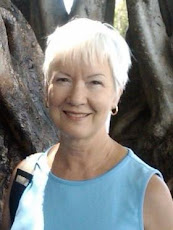

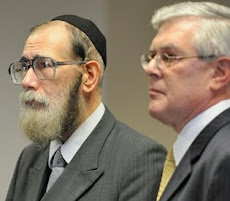

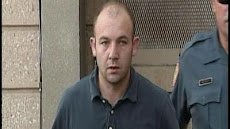









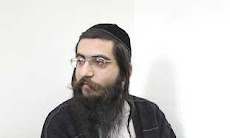





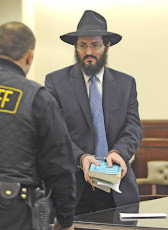














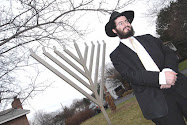




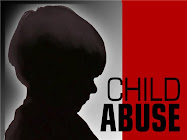













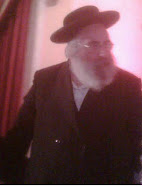



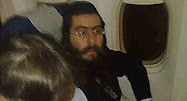




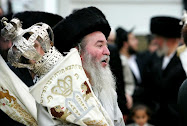


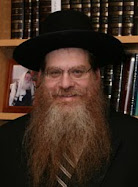












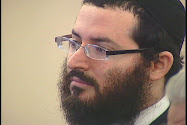
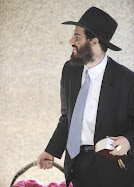
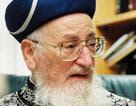









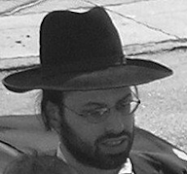

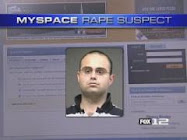









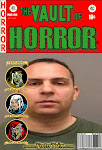












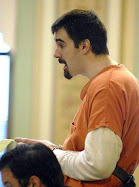


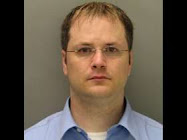


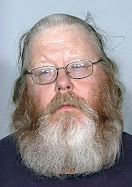

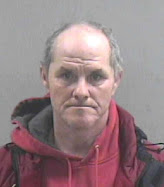
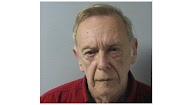
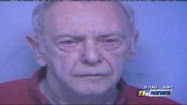













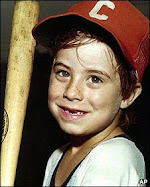

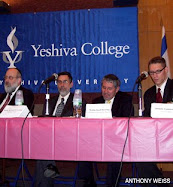






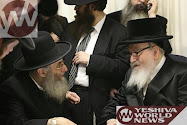







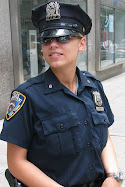


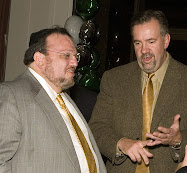
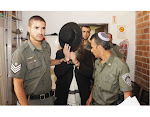



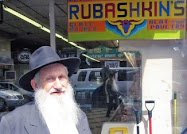















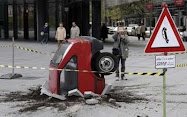










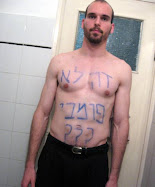
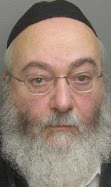












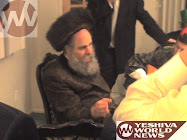






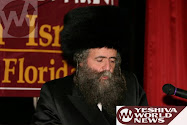


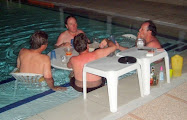

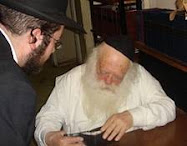

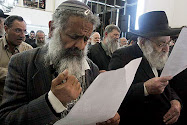
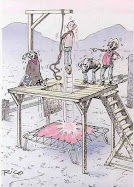
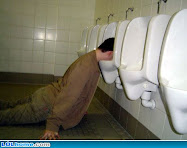



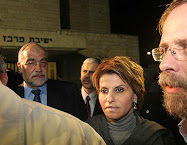
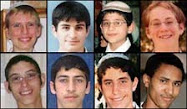
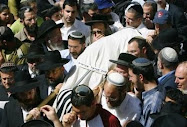
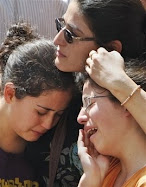
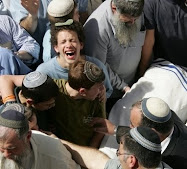
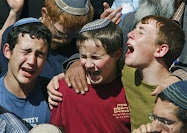
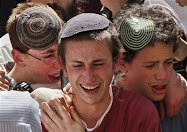
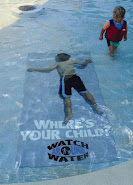

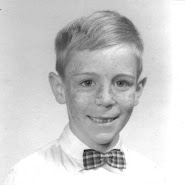







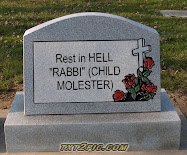
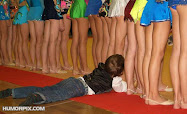







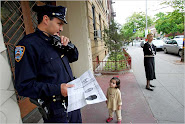















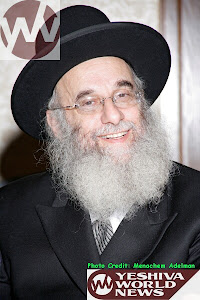

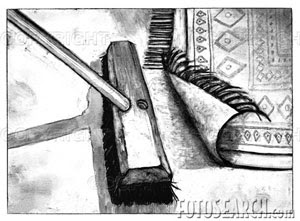
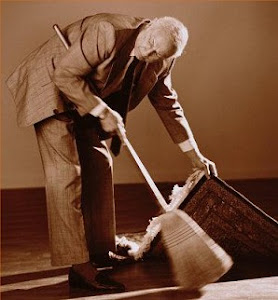









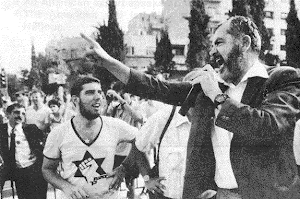
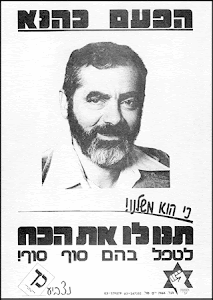
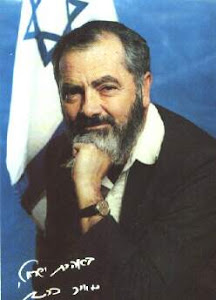
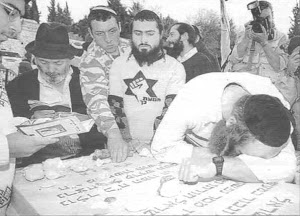
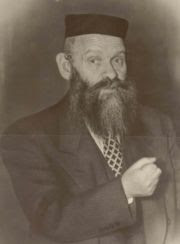




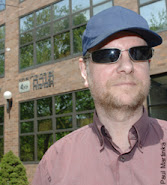


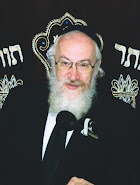





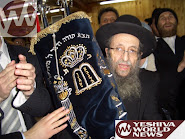

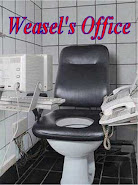

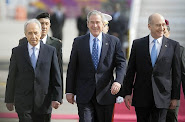
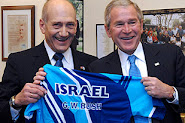
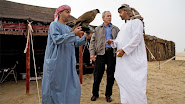


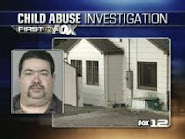
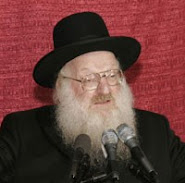

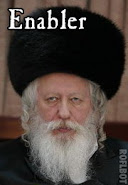


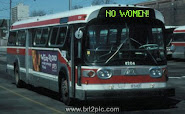
















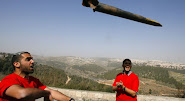
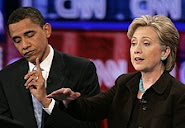


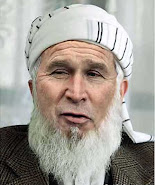









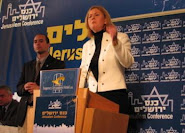


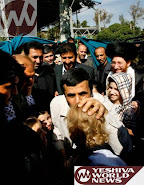
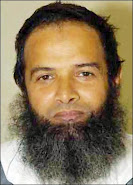


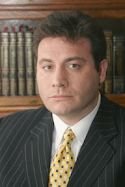


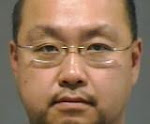
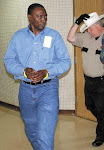

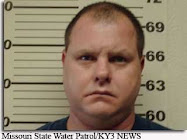



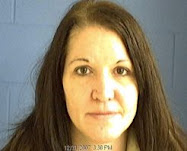
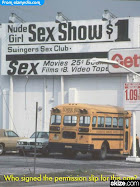

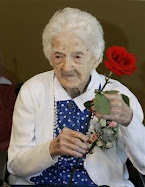

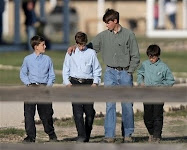



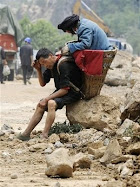



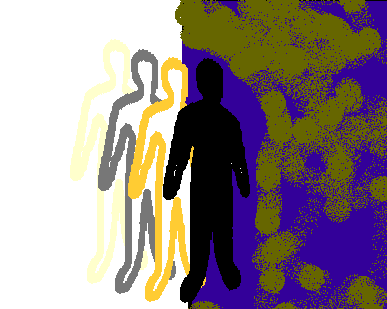

Vicky is David Mandel right? Can a molester be cured? If hes wrong how is Ohel Family Services helping victims?
http://www.thejewishweek.com/news/newscontent.php3?artid=12593&print=yes
Following Rabbi Twerski, Mandel spoke about ways to engage children in conversations about sex abuse. Mandel noted that it was up to the parents to engage their children because most victims do not come forward due to shame, fear of their abusers, a sense of loyalty to their abusers and/or concern about being stigmatized.
However, when an audience member asked whether sex education could help to strengthen children's knowledge of inappropriate behaviors and empower them to come forward if someone violated them, Mandel responded that sex education was "not something realistic" in a community that stresses modesty.
He told parents that the overwhelming majority of children who have experienced "unwanted touch" would go on to live happy, healthy lives, while only a "small percentage" of individuals would be permanently harmed by the abuse
Mandel also said that abusers could be treated for their perversions.
"An individual who abuses children and who participates in treatment can lead a successful life and be believed that they would no longer hurt children," Mandel said.
When asked, in an interview the following day, whether such people could work with children again, Mandel evaded the question.
How can anyone in their right mind go to Ohel? They are clueless in doing anything for either victims or offenders.
Beware of using Ohel Family Services Domestic Violence. Dont be lured because its free. Your marriage could be ruined. Go to someone that cares and can help you